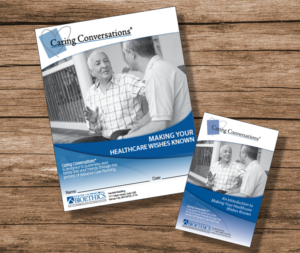Advance Care Planning: Responding to the Need for Diverse Communities’ Participation
By James Stowe, PhD, President and CEO

Rather than dying of a traumatic event or infectious disease, most Americans now succumb to chronic conditions that complicate their lives and treatment decisions over the course of years, sometimes even decades.
What the Research Shows
For nearly 20 years, a growing body of research has documented that patients and families are not prepared for these increasingly difficult decisions. The complexities of treatment options make navigating healthcare systems, especially acute care settings, nearly impossible. Honoring the wishes of vulnerable patients living with advanced disease requires unprecedented commitment and collaboration among hospitals, emergency medical services, nursing homes and home care providers.
Research confirms that patients being given the opportunity to articulate desired outcomes in terms of where and how they will spend the last weeks and months of life leads to greater satisfaction for families and clinicians. Recent studies show that ACP and structured shared decision-making tools can prevent unnecessary suffering, tragic consequences and wasted resources.
The need is great and growing. A recent (2020) study of 9,000 participants (published in the Journal of Palliative Medicine) found that, while nearly 90% reported awareness of ACP and considered it important, fewer than 40% had named a proxy or completed a written document. Lower participation rates among minority communities can be attributed to cultural barriers, structural racism, and longstanding distrust of the healthcare system.
The Center’s Commitment
Building on its legacy work in ACP, the Center’s national involvement in end-of-life care emphasizes our growing commitment to diverse communities’ participation and the need to respond effectively to emergent high stress situations in medical decision making.
The Center’s noteworthy accomplishments working with African American faith communities have contributed to the field by creating tools and resources for local congregations and resulted in a major initiative at Duke University School of Divinity.
The challenge is to integrate these findings into our communities’ culture and practice. Acknowledging this challenge, the Center received funding in 2022 from the Health Forward Foundation and the Hall Family Foundation to adapt the Center’s longstanding Caring Conversations ACP materials and approach to be more accessible and attractive to the Latino community.
challenge, the Center received funding in 2022 from the Health Forward Foundation and the Hall Family Foundation to adapt the Center’s longstanding Caring Conversations ACP materials and approach to be more accessible and attractive to the Latino community.
The project endeavored to offer Spanish-language ACP resources through partner community organizations who already had trusted relationships in the Latino community. As this project concludes, the Center has received direct community feedback into ways to enhance the approach and process. In a local partnership, we facilitated access to a national research project through the Hospice Association of America that seeks to enhance ACP offerings to Latinos.
ACP will continue to be a critical component of the Center’s offerings and focus. We are committed to ensuring that our activities in this area ally with diverse groups through a culturally humble and partnership-focused approach.
By James Stowe, PhD, President and CEO








